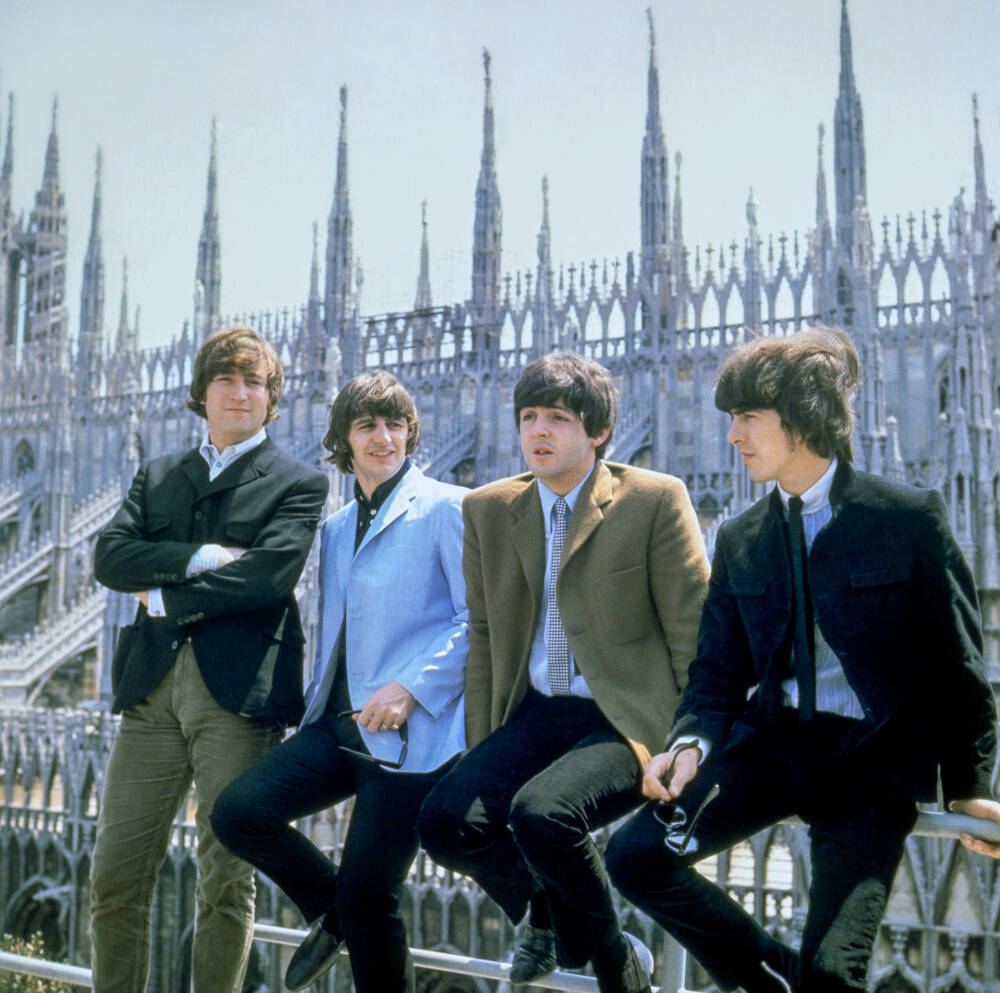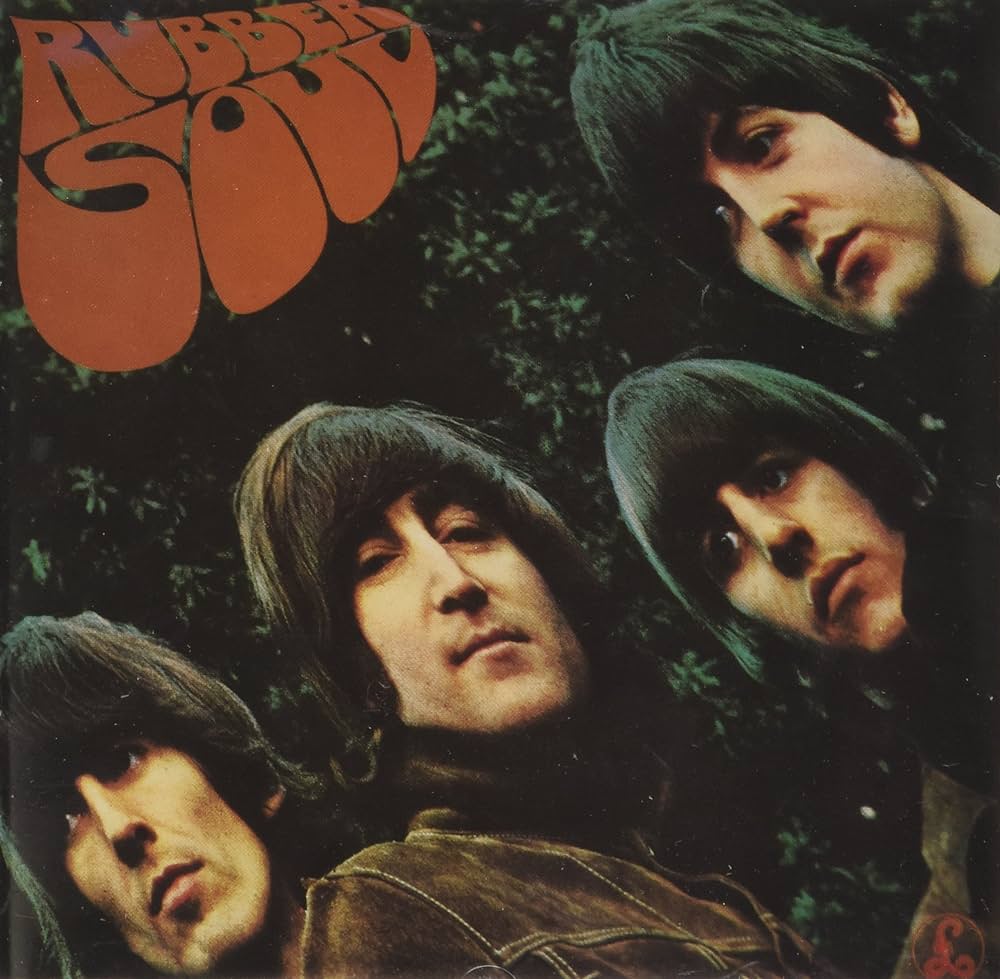RUBBER SOUL
The Beatles
1965
Every kind of Beatles fan is annoying. Sgt. Pepper’s fans are annoying and can’t fathom thinking “She’s Leaving Home” repetitive and saccharine. Fans of McCartney’s solo work are annoying in that they’ll do everything in their power to avoid talking about “Eleanor Rigby” again so they’ll fill your feed with “Monkberry Moon Delight” and “Temporary Secretary.” Fans of the early years will pretend that the covers of “Roll Over Beethoven” and “Dizzy Miss Lizzy” aren’t fucking awful. Hearing “Imagine” in a public space is grounds for tribunal against whoever put it on the playlist.
I’m all of these fans. I’ve been all of these fans all my life. When The Beatles would come up when I was in high school, eyes would turn to me. I was neurotic about them – they meant a lot to me. I’d stay up on school nights reading the Wikipedia page on every track from The White Album. I’d teach myself to sing every word of Please Please Me and Abbey Road. I wrote an entire scene for my dramatic show choir in Beatles song titles. I’d send lyrics to girls I’d never be brave enough to ask out. I was, to put it kindly, insufferable to the point of meriting euthanasia.
The album that’s always been right toward the top of my list is Rubber Soul, the first album they made without already having tour gigs lined up. The willingness to imagine music that might be hard to recreate live sets them on their pop art odyssey throughout the rest of the decade. This is the first of their albums where I’d argue the arrangements and harmonies occupy such a full sonic range that they feel swaddling. The quilted maximalism sounds so different from the jangly rock band they’d been in the studio for the three years prior, an arms race kicked off by The Ronettes’ “Be My Baby” and amped up by Brian Wilson of The Beach Boys.

Many of Paul’s best basslines can be found on Rubber Soul, from his forward melodic contribution to “Michelle” to the perfect harmonic underpinning of “Nowhere Man.” Ringo’s drumming is as keyed in and unshowy as he always manages to be. In general, the album offers few of the showier instrumental interludes of their cited highlights – there’s no “Taxman” or “While My Guitar Gently Weeps” guitar solo, no “The End” or “A Day in the Life” drum fill extravaganza. Rubber Soul is led by its vocal harmonies, dominated by the interplay between voices.
I’d argue that’s largely because the majority of the lyrics continue in Help!’s trajectory, getting more and more anecdotal and folksy, touching on more mature themes than the silly love songs they came up singing. I’m not going to pretend that these lyrics are especially intricate – the storytelling on “Girl” or “Norwegian Wood (This Bird Has Flown)” are major steps forward for The Beatles’ discography, but this is the year after Nina Simone has released “Mississippi Goddam,” the year Bob Dylan launches stratospheric between Highway 61 Revisited and Bringing It All Back Home, the year Otis Redding releases the original version of “Respect.” But there are some evocative images that match the musicality – “Nowhere Man” is evocative and sad without identifying a clear subject, and its soaring guitar part captures that ennui. “I’m Looking Through You” identifies the nothing that it takes for people to grow apart more directly, turning this complex feeling into a lovely pop song.
Rubber Soul is the firing gun for album oriented rock. Rubber Soul is begot by listening to Bob Dylan and The Byrds, and incorporating that folk approach begets The Velvet Underground and Pet Sounds and Aftermath, which beget Queen and Led Zeppelin, which etc. etc. I’d argue album oriented rock simultaneously represents many of the most important advancements in recording equipment, pop cultural taste for artful arrangement, and the replacement of jazz as America’s dominant musical form, and I’d also argue it’s a morose trap for white scolds of all ages.
There is no need to throw the baby out with the bathwater. I know I’ve grown out of rockism as The One Way. This album’s given me gifts beyond my taste. “In My Life” is not a complex sentiment – just a beautiful, sincere, evocative one. “I know I’ll often stop and think about them/In my life, I love you more.” A kindness that seems so admirable – to love and honor the people you’ve loved and lost, the people you’ve been and outgrown (even if they were insufferable,) while still choosing the future.
KEY TRACKS: “You Won’t See Me,” “Nowhere Man,” “In My Life”
CATALOG CHOICE: Abbey Road
NEXT STOP: Bringing It All Back Home, Bob Dylan
AFTER THAT: Odessey and Oracle, The Zombies
